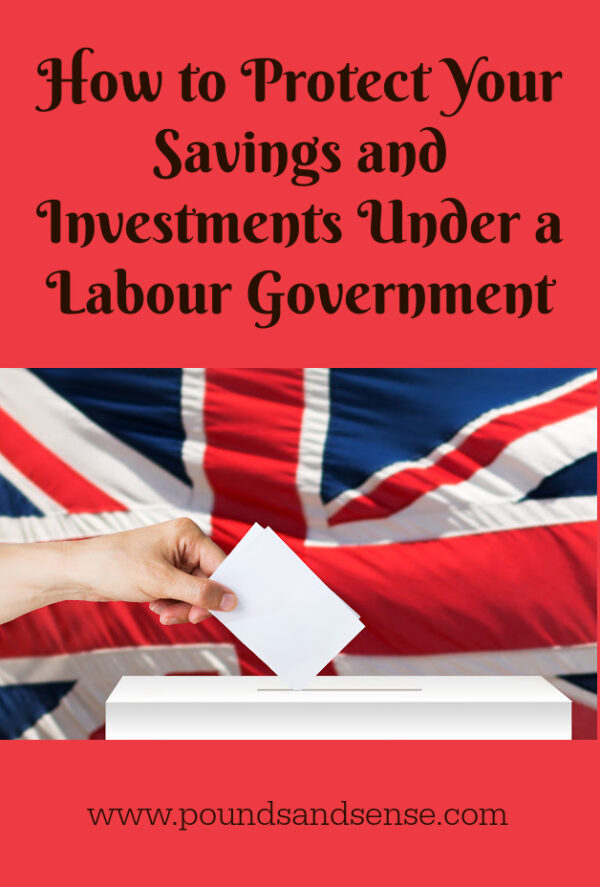Ten Tax-Free Ways to Boost Your Finances
As you may have heard, UK citizens are currently bearing the highest tax burden since WW2.
And with the new government looking to raise more money to pay for its ambitious spending plans, there is no sign of that changing any time soon. So today I thought I’d set out some ways you may be able to boost your finances without increasing your tax liability.
As you’ll see, doing this needn’t involve complicated investment strategies or seeking ‘loopholes’ in tax legislation. There are numerous perfectly legal ways to boost your finances without worrying about the taxman. Here are ten methods to consider…
1. Maximize Your ISA Contributions
Individual Savings Accounts (ISAs) offer a fantastic way to save money tax-free. The annual ISA allowance for 2024/25 is (still) £20,000. Whether you choose a Cash ISA, a Stocks and Shares ISA, an Innovative Finance ISA (IFISA), or a combination of all three, any returns you make are entirely tax-free. This makes ISAs a straightforward and effective way to boost your savings.
2. Utilize Your Personal Savings Allowance
For basic-rate taxpayers, the first £1,000 of interest on savings is tax-free each year. Higher-rate taxpayers can earn up to £500 in interest before paying tax. This means you can keep more of the interest you earn from your savings accounts, helping your money grow more quickly.
3. Invest in Premium Bonds
Premium Bonds, offered by National Savings & Investments (NS&I), provide a unique way to save money tax-free. Instead of earning interest, your bonds enter a monthly prize draw for cash prizes. Any winnings are tax-free.
Premium bonds are guaranteed by the UK government and you can get your money back at any time. Obviously there are never any guarantees how much you will win (or if you will win at all) so it’s strongly advised that you have other savings and investments as well.
4. Try Matched Betting
Matched betting is a method used to exploit free bet promotions offered by bookmakers. When done correctly it’s risk-free and the earnings are tax-free in the UK. Matched betting involves placing bets on all possible outcomes of an event using free bets to ensure a profit regardless of the result. While it requires careful attention to detail, it can be an effective way to boost your finances. Just be aware that the longer you do it, the more difficult it may become to find suitable opportunities. But if you need a short-term, tax-free income boost, matched betting can certainly fit the bill.
I have written about matched betting on PAS on various occasions in the past. You can read my latest article ‘Can You Still Make Money From Matched Betting?’ here.
5. Claim Marriage Allowance
If you’re married or in a civil partnership and one of you earns less than the personal allowance (£12,570 in 2024/25), you could transfer £1,260 of your allowance to your partner, reducing their tax bill by up to £252 a year. This one simple step can provide a meaningful boost to your household finances.
6. Earn Up To £1,000 Tax-free
If you have a hobby or skill, consider monetizing it. The UK government allows you to earn up to £1,000 (gross) tax-free each year from trading or property income under the Trading and Property Allowance. This could include doing odd jobs, selling handmade crafts, offering tutoring services, or renting out a spare room occasionally. As long as you keep under the £1,000 annual limit, you don’t have to pay tax on this money or even tell the taxman about it.
7. Utilize Cashback and Rewards Cards
Cashback and rewards credit cards can provide a significant boost to your finances if used wisely. By earning points or cashback on everyday purchases, you can effectively reduce your outgoings. Just remember to pay off any balance in full each month to avoid interest charges. Cashback cards and apps (e.g. Jam Doughnut) are tax-free, as HMRC regard them as simply returning your own money to you.
8. Rent a Room Scheme
Under the Rent a Room Scheme, you can earn up to £7,500 per year (gross) tax-free by renting out a furnished room in your home. This is a great way to utilise extra space and generate additional income without incurring any tax liability.
9. Switch and Save
Regularly switching your utility providers, insurance, bank account and other services can save you hundreds of pounds each year. Comparison websites such as Compare the Market make it easy to find the best deals, and many offer incentives for switching. These savings are effectively tax-free boosts to your disposable income. And switching bonuses (as offered by some banks) are tax-free, as HMRC regard them as a form of cashback.
10. Sell Stuff You No Longer Need on eBay
Selling items you no longer need or use on platforms like eBay can provide a significant financial boost. The taxman allows individuals to sell personal items without paying tax on the proceeds provided it’s not done as a business. This decluttering process can turn unused possessions into tax-free cash.
Just be aware that if you buy things with the intention of reselling them, that would be seen as trading and there could be tax to pay. Also, if you sell a product for more than you originally paid for it, you could be liable for capital gains tax (CGT) if the profit made exceeds your annual CGT tax-free allowance.
Closing Thoughts
So there you are – ten ways you can boost your finances without incurring any extra tax liability. Of course, there is no guarantee that the government won’t change the law on some of these, so I will update this article if that happens. For the time being, though, I urge you to take advantage of as many of these opportunities as you can. In the current cost of living crisis, we all need to hang on to as much of our hard-earned money as possible!
As always, if you have any comments or questions about this article – or other tax-free opportunities that you think should have been covered as well – please do leave them below.
Disclaimer: I am not a qualified financial adviser and nothing in this blog post should be construed as personal financial advice. Everyone should do their own ‘due diligence’ before investing and seek professional advice if in any doubt how best to proceed. All investing carries a risk of loss. Note also that posts on PAS may include affiliate links. If you click through and perform a qualifying transaction, I may receive a commission for introducing you. This will not affect the product or service you receive or the terms you are offered, but it does help support me in publishing PAS and paying my bills. Thank you!



